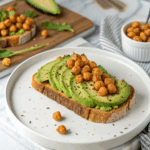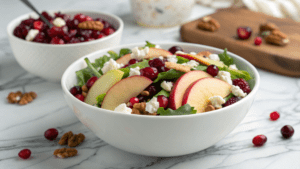
Did you know that on average, people underestimate their calorie intake by 20-30%?
Understanding how to count calories and exercise is essential for anyone looking to manage their weight or improve their overall health. From deciphering nutrition labels to utilizing helpful apps, we’ve got you covered with health information, fat, water, and exercise. Whether you’re aiming to shed a few pounds or simply want to make more informed food choices, mastering the art of calorie counting can be a game-changer for your wellness journey.
Calories, fat, and count refer to the energy and health information found in food and drinks that people consume. When people eat or drink, they consume calories that our bodies use for various functions like breathing, walking, and thinking.
Consuming more calories than our bodies need can lead to weight gain, result. On the other hand, not consuming enough calories can result in weight loss and health issues.
Understanding caloric intake, including how many calories you consume, is crucial for maintaining a healthy weight and overall well-being. By being mindful of the number of calories consumed daily, individuals can manage their weight effectively and achieve the desired result.
For example, if someone’s body needs 2000 calories per day to maintain their current weight but they consume 2500 calories, they will likely gain weight over time. Conversely, if they only consume 1500 calories, they may lose weight.
Tracking your daily calorie intake is crucial for making informed decisions about your diet. By keeping a record of the calories you consume, you gain a better understanding of your eating habits and can make adjustments as needed. For instance, if you notice that you’ve been consuming more calories than necessary, you can take steps to balance it out by incorporating healthier food choices or increasing physical activity.
Utilizing portion control is one effective technique for successful calorie counting. When serving yourself meals or snacks, being mindful of portion sizes helps in managing calorie intake. For example, instead of mindlessly munching on a whole bag of chips while watching TV, putting a small portion into a bowl can help control how much you eat and thus manage the number of calories consumed.
Reading nutrition labels plays an essential role in accurate calorie counting. Nutrition labels provide valuable information about serving sizes and the number of calories per serving. This allows individuals to make informed decisions about their food choices based on their dietary needs and goals.
In addition to monitoring caloric intake through food consumption, exercise also contributes significantly to managing overall calorie balance in the body. Engaging in physical activities such as walking, running, swimming, or cycling helps burn additional calories while promoting overall health and well-being.
Tracking calories can be made easier with the help of technology. Smartphone apps and fitness trackers are valuable tools that simplify the process. These technological advancements streamline the often tedious task of recording what you eat.
Utilizing these apps and devices provides easy access to a vast database of food information. This means that when you’re unsure about the caloric content of a particular food item, all it takes is a quick search on your smartphone or fitness tracker to find out.
One significant advantage of utilizing technology for calorie tracking is the convenience offered by barcode scanning capabilities in various apps and devices. For instance, if you’re having a snack with a barcode, simply scanning it using your smartphone app allows for accurate calorie tracking without manual input.
The time-saving aspect cannot be overlooked when discussing technology’s role in calorie counting. Instead of spending time manually entering every meal’s details, users can quickly scan barcodes to obtain accurate nutritional information and track their caloric intake efficiently.
Measuring cups, spoons, and kitchen scales are essential for accurately measuring portions. They help in determining the exact amount of food you’re consuming. For instance, a kitchen scale can be used to weigh meat or vegetables to ensure accurate portion sizes.
Familiarizing Yourself with Common Sizes Getting familiar with common portion sizes can also aid in estimating calories when precise measurements aren’t possible. For example, a medium-sized apple is roughly equivalent to one serving of fruit, making it easier to estimate calorie intake without using measuring tools.
Paying attention to serving sizes listed on food packaging is crucial for ensuring accurate portion measurement. Many packaged foods provide information about the number of servings contained within the package and the recommended serving size per person. This information helps individuals understand how much they are consuming and track their calorie intake effectively.
The quality of your diet plays a significant role in how to count calories. Nutrient-dense foods, such as fruits, vegetables, and lean proteins, provide essential vitamins and minerals without packing excessive calories. For example, a cup of broccoli has fewer calories than a small bag of potato chips but offers more nutrients.
Choosing these nutrient-dense options can help you feel full and satisfied while consuming fewer calories. On the other hand, opting for high-calorie, low-nutrient foods like sugary drinks or processed snacks can quickly add up your calorie intake without providing substantial nutritional benefits.
The types of food you consume have different effects on your overall caloric intake. By incorporating whole, unprocessed foods into your meals—such as whole grains instead of refined grains or fresh fruits instead of fruit juices—you can effectively manage your food intake while meeting your nutritional needs.
For instance, swapping white rice with brown rice not only increases fiber content but also reduces the calorie density per serving. These simple swaps contribute to maintaining a balanced diet by lowering calorie consumption without compromising essential nutrients.
Setting realistic caloric goals is essential for successful weight management. It’s important to understand that everyone’s needs are different, so what works for one person may not work for another. Factors such as current weight, gender, and level of physical activity all play a role in determining the appropriate caloric intake.
Balancing your caloric intake with physical activity is crucial when aiming for weight loss or maintenance. For example, if you consume more calories than your body uses, it can lead to weight gain. On the other hand, consuming fewer calories than needed can result in weight loss. This balance is key to achieving and maintaining a healthy weight.
Consulting a healthcare professional or registered dietitian can provide personalized guidance. They can take into account various factors such as your current health status, lifestyle, and any underlying medical conditions that may impact your dietary needs.
It’s also important to remember that achieving caloric goals isn’t just about managing weight; it also has an impact on overall health. Consuming nutrient-dense foods like whole grains, fruits, vegetables, lean proteins, and healthy fats while monitoring calorie intake is vital for promoting good health and preventing chronic diseases.
Counting calories can help you become more aware of the types and amounts of food you eat. This awareness allows you to make informed choices about your meals, helping you understand which foods are more nutrient-dense and satisfying.
For example, when counting calories, you might realize that a small handful of nuts contains more calories than a whole plate of vegetables. This realization can guide your food choices towards options that provide better satiety and nutrition for the same or fewer calories.
By tracking calories, you hold yourself accountable for what you consume throughout the day. It helps in managing portion sizes, ensuring that you don’t overeat or consume excessive portions without realizing it.
Imagine if someone is trying to lose weight by reducing their calorie intake. By counting calories, they can ensure they’re not unknowingly consuming extra calories from mindless snacking or large portion sizes during meals.
However, while there are benefits to calorie counting, it’s important to be mindful of potential drawbacks. For instance, focusing solely on calories may lead to neglecting essential nutrients like vitamins and minerals necessary for overall health.
If someone becomes fixated on staying within a certain caloric limit without considering the nutritional value of their food choices, they might miss out on key nutrients vital for their well-being.
Nutrition experts, like registered dietitians, are valuable resources for developing effective calorie counting methods. They offer personalized advice on caloric needs, meal planning, and tracking techniques. For instance, they can help you understand how to estimate the number of calories in different foods and drinks.
Seeking guidance from reputable sources such as scientific studies or evidence-based resources is also crucial. These sources enhance your understanding of calorie counting and provide reliable health information. By consulting these sources, you can gain insights into the calorie content of various snacks and meals.
Registered dietitians can assist in creating personalized meal plans that align with your caloric needs. This involves identifying healthy items to incorporate into your meals while ensuring that you stay within your recommended calorie intake. They may also guide you on how to track your daily calorie consumption effectively.
Consulting reputable websites known for providing accurate health information is a good place to start when seeking advice on how to count calories effectively. Many people find these websites helpful because they offer practical examples and tips for maintaining a balanced diet while monitoring their calorie intake.
Start by counting calories for a few days to understand your current eating habits. This will give you insight into where your calorie consumption stands and help you identify areas that need improvement. By tracking what you eat, you can pinpoint any unhealthy patterns or excessive intake of certain foods.
Consistency is key. Make sure to record your food intake every day, without skipping meals or snacks. This will provide a comprehensive view of your overall caloric intake, allowing you to make informed decisions about your diet.
Instead of fixating solely on individual meals or snacks, focus on the bigger picture – your overall dietary patterns. Look at the types of food you consume regularly and their nutritional value. By understanding these broader patterns, you can make sustainable changes to improve your diet.
When analyzing calorie counting, consider not only the number of calories but also the quality of those calories. For example, 100 calories from a sugary snack may affect your body differently than 100 calories from a piece of fruit due to differences in nutrients and fiber content.
Congratulations on reaching the end of this calorie-counting journey!
By now, you understand the crucial role of caloric intake, effective counting techniques, and the impact of diet quality. Remember, accurate portion measurement and utilizing technology are key to your success. While calorie counting has its benefits, it’s important to seek expert guidance and remain mindful of its drawbacks. With these insights, you’re equipped to achieve your caloric goals for weight management.
Now, armed with expert tips and a deeper understanding of calorie counting, it’s time to take action. Start implementing these strategies, track your progress, and make adjustments as needed. Remember, consistency is key in this process.
Understanding caloric intake is crucial for managing weight and overall health. By grasping the concept, you can make informed decisions about your diet and ensure that you consume an appropriate amount of calories to meet your body’s needs.
Effective calorie counting involves tracking your food intake accurately, utilizing apps or journals, and being mindful of portion sizes. It’s like creating a detailed financial budget – every calorie counts toward achieving your health goals.
Technology offers various tools such as mobile apps and wearable devices that simplify the process of monitoring calories. These aids provide convenience and real-time feedback, making it easier to stay on track with your dietary goals.
The quality of your diet significantly affects how satisfied you feel after consuming certain foods. Nutrient-dense options keep you fuller longer, helping manage cravings while staying within a healthy caloric range.
Seeking expert guidance ensures that you receive personalized advice tailored to your unique needs. Professionals can offer valuable insights into effective strategies, troubleshoot challenges, and provide ongoing support for successful calorie management.

Try this delicious and protein-packed avocado and chickpea toast—perfect for a quick, healthy breakfast or snack. Loaded with fiber, flavor, and plant-based goodness.

Say goodbye to flabby arms with these targeted triceps workouts for women. Strengthen, tone, and sculpt your arms with exercises designed to deliver visible results.

This one-pan Enchilada Skillet is a quick, hearty, and flavorful twist on traditional enchiladas—ready in just 30 minutes! Packed with protein, veggies, and bold spices, it’s a perfect weeknight dinner.

Discover the ultimate guide to sweat-proof makeup for active women. Learn the best products, tips, and routines to keep your makeup fresh through any workout.

This fresh and vibrant Cranberry Apple Salad is the perfect blend of sweet, tart, and crunchy! Packed with nutrients and ready in minutes, it’s an ideal side dish or light lunch.

Discover simple, science-backed ways to reduce stress and boost mental health. These practical tips are tailored to help women feel more balanced, calm, and in control.